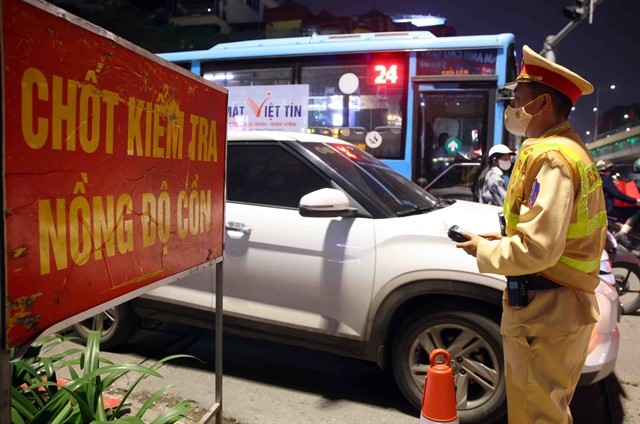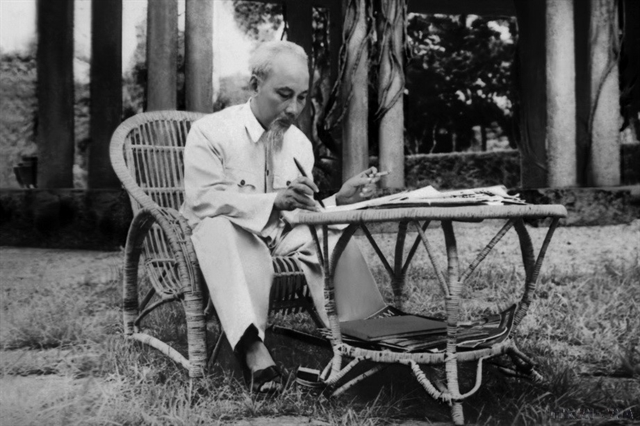 Society
Society


|
| Most students take extra classes in the evening. Photo suckhoedoisong.vn |
HÀ NỘI – Proposal of adding tutoring or extra class activities to the conditional business sector has been causing controversy among teachers.
In this month’s National Assembly (NA) meeting, Minister of Education and Training Nguyễn Kim Sơn proposed making tutoring or extra classes a conditional business.
Conditional businesses must meet set requirements in scope, form or content of operation.
Sơn said that extra class operation is a big problem, stemming from practical needs of students and teachers.
In fact, the ministry has many regulations, including a circular dated 2012 to control extra teaching and learning activities within the school framework, as well as on issues of ethics, public service of teachers, and school behaviour, he said.
However, especially in the non-school environment, there is currently a lack of legal basis to monitor, regulate, and handle violations.
The minister said since 2020, in the process of amending the Investment Law, the Ministry of Education and Training (MoET) had sent a written proposal to the Prime Minister, the National Assembly's Economic Committee and the Ministry of Planning and Investment on making tutoring a conditional business, but it was not approved.
In Sơn’s point of view, adding tutoring to the list of conditional business sectors will create a legal basis to handle violations outside of school.
He also affirmed that to make tutoring and extra-learning activities healthier required many synchronous solutions, not separate ones.
Deputy Nguyễn Văn Huy, in a NA debate session, raised his opinion that if doctors could open private clinics after office hours and many people in other professions could do other jobs after official working hours to earn more money, after-school tutoring is also a legitimate right of teachers.
Tutoring comes from the learners' wishes, it does not deserve condemnation and it should be regulated as a conditional business to avoid distortions, Huy said.
For and against
Many teachers applauded the proposal. They said legislating these activities will create favourable conditions for both teachers and schools.
Nguyễn Thị Ngọc Dung, principal of Minh Khai Secondary School in Hà Nội, said that the need for extra classes is real.
“I agreed with Huy's opinion. If extra learning comes from students' needs, it is not bad. This is the advantage of tutoring,” Dung told tienphong.vn.
However, the principal said that to make the tutoring business a truly quality service, there must be clear regulations such as licensing and teachers’ qualification.
"Granting permissions must be really serious,” she said.
With concerns that tutoring raises many negative things such as forcing students into extra classes, linking with centres, not teaching enough content in classes or giving students tests with the types of exercises practising in extra classes, Dung said: “Tutoring in schools is managed by the managers and the education division. And of course, the school must be responsible for organising the activity.”
“Private tutoring is indeed a problem. But if strictly monitored, it still will be fine,” she said.
Nguyễn Văn Xuân, principal of Hạ Bằng Secondary School in Hà Nội’s Thạch Thất District, affirmed that extra learning is a 100 per cent real need of parents and students.
In the current curriculum, the amount of work and knowledge is still very large. There are parts of the curriculum that students who do not go to extra classes will definitely not get, because teachers cannot teach everything in class, Xuân told vov.vn.
"The regulation making tutoring a conditional business is reasonable, this also helps reduce ‘bad reputation’ for schools. Tutoring and extra learning centres need to be managed to ensure they have the expertise and facilities to be allowed to operate; this is appropriate,” Xuân said.
But the important thing is that licensing agencies need to be very objective because there will be many ways to circumvent the law in order to get a licence, he added.
A literature teacher in Hà Nội said that the fact is that for a long time schools have been banned from organising extra classes, so students who do poorly in classes have to hire tutors at home or look for extra classes outside school, the teacher said.
The teacher admitted the reality that currently, tutoring activities in many schools are uncontrolled and have a bad reputation.
Schools do offer extra classes, but they are in “mandatory voluntary” form. With the mindset of being apprehensive and a little worried, students and parents sign up for these classes, she said.
“There is a real bias toward students who take part in extra classes. There is a phenomenon of teachers having a negative attitude towards students who do not accept extra lessons," the teacher said.
In reality, there are teachers who reserve part of the required curriculum for extra classes, she said.
Therefore, many people think that tutoring and extra learning are "evils" that need to be eliminated.
Reducing the negatives of tutoring, the teacher said, depends on the teacher's awareness, true professional self-esteem and self-respect.
On the other hand, reduction in extra classes also depends on the parents themselves.
In fact, many parents whose children study well often put pressure on themselves for better scores, passing entrance exams to top schools or taking international certifications.
“If the regulation on tutoring is a business, schools will make it public and transparent. And students and parents will feel free to choose extra classes,” she added.
Dr. Nguyễn Tùng Lâm, a co-founder of Đinh Tiên Hoàng High School in Hà Nội, agreed with the ministry’s proposal saying that it is the right of every learner and should not be banned.
"The important thing is how to organise this activity in accordance with the provisions of law, not to leave it uncontrolled as at present,” Lâm said.
Meanwhile, Nguyễn Xuân Khang, principal of Marie Curie School, said that for many years, there has been a widespread phenomenon of extra tutoring, causing frustration in public opinion.
Primary school students of 6 - 10 years old, whether good or bad at studying, all participate in extra classes. They study to the point that they become dazed and lose much needed rest time, Khang told suckhoedoisong.vn.
“Secondary and high school students also take additional classes during the week. Students from specialised schools attend more classes than non-specialised schools,” Khang said.
“There are children who want to go to extra classes. Parents also force them to take extra classes. The worst thing is that teachers force their students to come to their extra classes to learn more,” he said.
Widespread tutoring, beyond what is necessary or forced by parents or teachers, is the downside of teaching in general and of tutoring and extra learning in particular.
"I strongly oppose the widespread practice of tutoring. And there is no need to add the activity to the conditional business sector,” he added.
Prof. Dr. Phạm Tất Dong, former vice president of the Việt Nam Association for Learning Promotion, said that if education is included in the list of conditional business sectors, it will be very dangerous, because business is often associated with the problem of loss and profit.
“When chasing profits, there can be many negative consequences, because the principles of business require focused effort. Once allowed to teach extra lessons, teachers may neglect teaching in class and at school," Dong said.
There should be an organisation to monitor extra teaching and learning activities to avoid shortening the main curriculum and sparing knowledge in extra classes, he said.
Besides, it is also necessary to consider the situation of students participating in tutoring classes.
In his opinion, there are two types of students who need extra lessons: excellent students and poorly performing students.
For excellent students, the general curriculum is too easy so they need a more advanced programme to develop their own abilities. For poorly performing students, teachers need to offer classes to help them keep up with the minimum requirements, he said.
If there are no regulations or sanctions on tutoring activities, negative phenomena will continue, such as teachers’ bias to students based on whether or not they join extra lessons, he added. VNS




